 Petzlover
Petzlover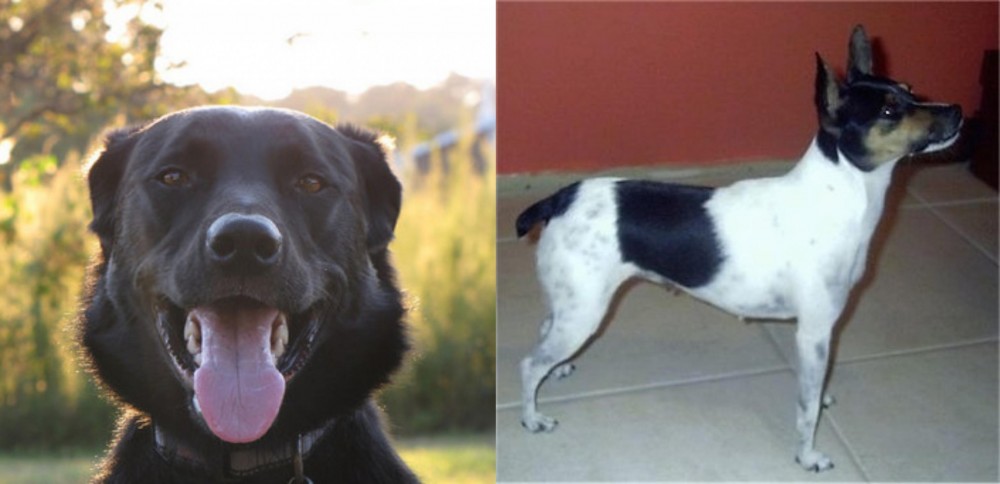 Borador is originated from United States but Miniature Fox Terrier is originated from Australia. Borador may grow 27 cm / 11 inches higher than Miniature Fox Terrier. Borador may weigh 20 kg / 45 pounds more than Miniature Fox Terrier. Both Borador and Miniature Fox Terrier has almost same life span. Borador may have more litter size than Miniature Fox Terrier. Borador requires Moderate Maintenance. But Miniature Fox Terrier requires Low Maintenance
Borador is originated from United States but Miniature Fox Terrier is originated from Australia. Borador may grow 27 cm / 11 inches higher than Miniature Fox Terrier. Borador may weigh 20 kg / 45 pounds more than Miniature Fox Terrier. Both Borador and Miniature Fox Terrier has almost same life span. Borador may have more litter size than Miniature Fox Terrier. Borador requires Moderate Maintenance. But Miniature Fox Terrier requires Low Maintenance
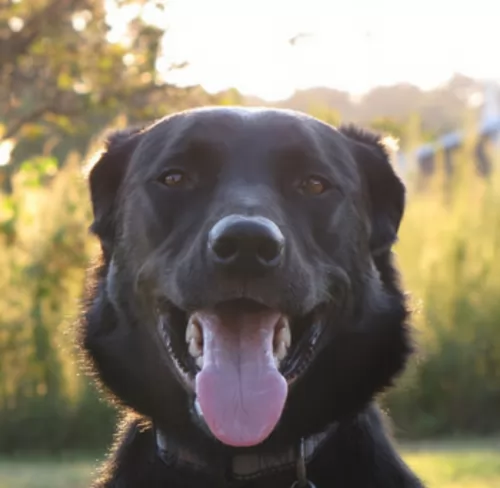 Hybrid breeds have become popular in the last decade or so. The Borador, hailing from Northern America, is one of these popular crossbreeds between two very popular dog breeds - the Border Collie and the Labrador Retriever. Between the two dog breeds, you get extraordinary intelligence, energy and a wonderful temperament.
Hybrid breeds have become popular in the last decade or so. The Borador, hailing from Northern America, is one of these popular crossbreeds between two very popular dog breeds - the Border Collie and the Labrador Retriever. Between the two dog breeds, you get extraordinary intelligence, energy and a wonderful temperament.
You first started hearing about this dog breed in the early 21st century. However each of the two breeds brought together to produce the Borador have got reasonable lengthy histories.
 Known as Mini Foxies or Toy Fox Terriers, these dogs hail from Australia, having been bred there since the 1800s already.
Known as Mini Foxies or Toy Fox Terriers, these dogs hail from Australia, having been bred there since the 1800s already.
They are descendants of fox terrier types which were bred in England and then brought to Australia by early settlers.
It is believed the small Smooth Fox Terriers were crossed with Manchester Terriers and then the puppies further bred and crossed with other small breeds. The idea was to have a small, light, quick dog. The Miniature Fox Terrier is exactly like this, developed as a hunting dog.
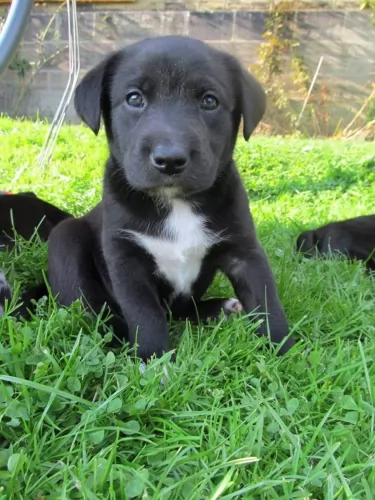 The Borador is a medium to large sized working dog which is well well-proportioned and muscular. His size can’t be carved in stone, but generally he will be in size from 40 – 57cm and weight in the region of 18 and 26 kg. His coat can vary significantly, leaning more towards one particular breed than the other. So the coat can be short and smooth or long and wavy or straight.
The Borador is a medium to large sized working dog which is well well-proportioned and muscular. His size can’t be carved in stone, but generally he will be in size from 40 – 57cm and weight in the region of 18 and 26 kg. His coat can vary significantly, leaning more towards one particular breed than the other. So the coat can be short and smooth or long and wavy or straight.
The Borador essentially has medium-sized ears which are floppy and the tail is medium-length. Sometimes the Borador will have the black and white coat of the Border Collie or he could have a brownish/beige colour from a golden Labrador.
When your energetic Borador is trained and socialized, he becomes a great family member and he gets on well with children and other pets.You’ll find that he often has the sweet, amicable temperament of the Labrador while having the sharp, alert intellect of the Border Collie.
Most Boradors are also good watchdogs and will bark at strangers, but because they are so amicable, from barking, they can quickly become a stranger’s friend.
 With longevity on his side, the Miniature Fox Terrier can live to be between 10 and 14 years of age or live to be even older - up to 18 years of age.
With longevity on his side, the Miniature Fox Terrier can live to be between 10 and 14 years of age or live to be even older - up to 18 years of age.
He stands at between 24 – 30cm and weighs anything between 3 and 6kg. His coat is short but he sheds quite a bit so regular brushing will become necessary.
The coat is smooth and is mostly white and tan or white and black but it can be tri-colored too – white, black and tan.
The ears are semi-erect, semi floppy and he has a bright, expectant look about him. The tail has always been traditionally docked, giving him a distinctive look, but now it tends to be undocked.
Your Miniature Fox Terrier is a bold little dog, and is protective and loyal towards his human family. He is lively and courageous and has lots of energy so he will be wanting lots of games indoors and out. He will love to go on a walk every day.
They make great family pets, getting on well with children and other pets in the home. They’re adaptable and can do well in the city or the countryside.
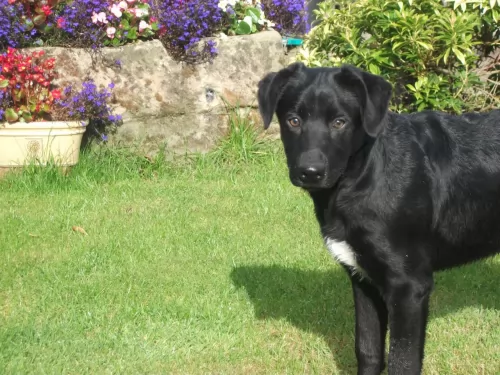 The Borador is an intelligent dog that can be trained. He is a sociable dog and is friendly to all members of his human family, willing to extend a paw of friendship to strangers as well.
The Borador is an intelligent dog that can be trained. He is a sociable dog and is friendly to all members of his human family, willing to extend a paw of friendship to strangers as well.
The Borador is also a friend of children and other pets. This combination of breeds is very energetic and you can’t just leave him for days on end in the backyard. He will need exercise and walks as well as ball games. When you become involved in his games, you tighten the bond between you and this is what this social, outgoing dog loves.
The Borador is going to make a wonderful pet because he is a mix of two very popular dog breeds. Give him all he deserves as a member of your family and you’ll have the perfect friend and companion for life.
 Miniature Fox Terriers aren’t going to disappoint you one bit in terms of making an excellent pet.They make great family pets. They are loyal companions and they also make great watchdogs, being able to adapt to life in the city as well as the countryside.
Miniature Fox Terriers aren’t going to disappoint you one bit in terms of making an excellent pet.They make great family pets. They are loyal companions and they also make great watchdogs, being able to adapt to life in the city as well as the countryside.
They can yap quite loudly so you need to be careful of this if you live in a small property in the city.
This is such a jaunty little dog, full of fun and high spirits. You won’t know a dull moment with such a friendly, entertaining little pet. In exchange for all he offers you in terms of friendship, he also wants your love and attention.
Provide him with good food, a good deal of exercise, a dry, warm place to sleep and your ongoing attention and he is going to shower you with his love and loyalty.
 You won’t find serious health problems with your Boradors, as he is a robust breed. Nonetheless, there are some ailments that as a dog owner, you need to be aware of for your Borador.
You won’t find serious health problems with your Boradors, as he is a robust breed. Nonetheless, there are some ailments that as a dog owner, you need to be aware of for your Borador.
Skin ailments – you don’t want to see your dog scratching or licking continuously so you want to be aware of things like parasites and allergies. Skin diseases can be debilitating for a dog and can even require lifelong treatments. Yes, corticosteroids can help with itchy rashes, but the best move is to try and avoid skin ailments by ensuring a nutritious diet rich in minerals and vitamins and which includes some raw meat.
Always be checking your pet for skin problems such as ringworm, caused by a fungus and found on your dog and which appear as scaly patches and hair loss.
Hip Dysplasia – an inherited problem with the hip joints. No-one can predict when hip dysplasia settles in, but it can be as early as 4 months of age.Your dog shows signs of stiffness and may not be his energetic self. Some dog owners want to see certificates first that the parents of puppies have been hip-cleared before they buy a puppy.
 Your Miniature Fox Terrier can live to be between 10 and 14 years of age when looked after well, but there are one or two common dog illness that can plague any dog, and Paella Luxation is one.
Your Miniature Fox Terrier can live to be between 10 and 14 years of age when looked after well, but there are one or two common dog illness that can plague any dog, and Paella Luxation is one.
Patella luxation is fairly common with small dogs, occuring when the dog’s kneecap becomes dislocated from its thigh bone.Your dog will skip and hop along. Treatment for patella luxation can range from non-invasive treatments such as massage to surgery.
Dental health is important too, and seriously bad breath can be indicative of dental decay. Dental plaque can cause bad breath and lead to other health problems that aren’t directly related to teeth. The heart and kidneys can be put at risk. There are dental products such as canine toothbrush and toothpaste which can be used to clean your dog’s teeth. Don’t ever use human toothpaste as this can be toxic for your pet.
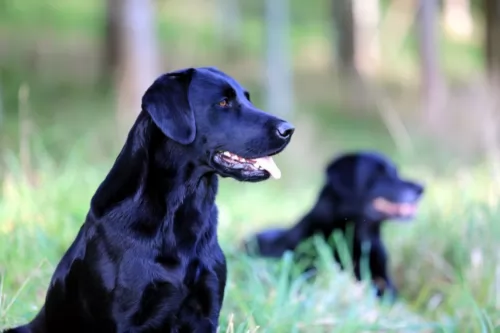 The Borador may have inherited the moderate shedder characteristics of the Border Collie or the more intense shedding of the Labrador Retriever. He will require a good brush at least twice a week to ensure you remove loose hairs so as to keep his coat shiny and healthy. Check your dogs ears too for yeast infections.
The Borador may have inherited the moderate shedder characteristics of the Border Collie or the more intense shedding of the Labrador Retriever. He will require a good brush at least twice a week to ensure you remove loose hairs so as to keep his coat shiny and healthy. Check your dogs ears too for yeast infections.
Puppies and young Boradors are full of energy and they will require a diet that has an excellent protein content. If you’re unsure about how to feed your Borador, speak to your vet as some dogs need more calories depending on their level of activity.
Certainly if your dog has allergies, you may have to look for a special diet but otherwise a top brand commercial dog food can be a good choice if you include some home prepared food such as rice, vegetables and meat. It is important to give your dog some raw meat every now and then as well. Always have a bowl of cool, fresh water available for your pet 24/7.
 Feed your terrier a quality commercially manufactured dog food twice a day. They are small dogs, but highly energetic so choose dog foods which are geared towards small, energetic dogs.
Feed your terrier a quality commercially manufactured dog food twice a day. They are small dogs, but highly energetic so choose dog foods which are geared towards small, energetic dogs.
His age and his activity levels will also give you an idea as to what to feed him. Apart from dry kibble, give him simple, tasty, nutritious home-made food too.Every now and again, add in boiled chicken, brown rice or pasta and some cooked vegetables such as potato, carrots and spinach. A little bit of raw meat occasionally can also do wonders.
Keep meals plain and simple like this to avoid stomach upsets.
Ensure your pet has constant access to fresh, cool water.
Brush him twice a week to keep the coat free of loose hair. Try and avoid bathing your pet as it causes dry skin and itchiness. Rather wipe him down with a rubber grooming mitt to keep him groomed.
Check his eyes and ears for infection. Check for fleas and ticks and any unusual lumps. Trim his nails too.
Take him to the vet when he appears to be ill and keep his vaccines up to date.